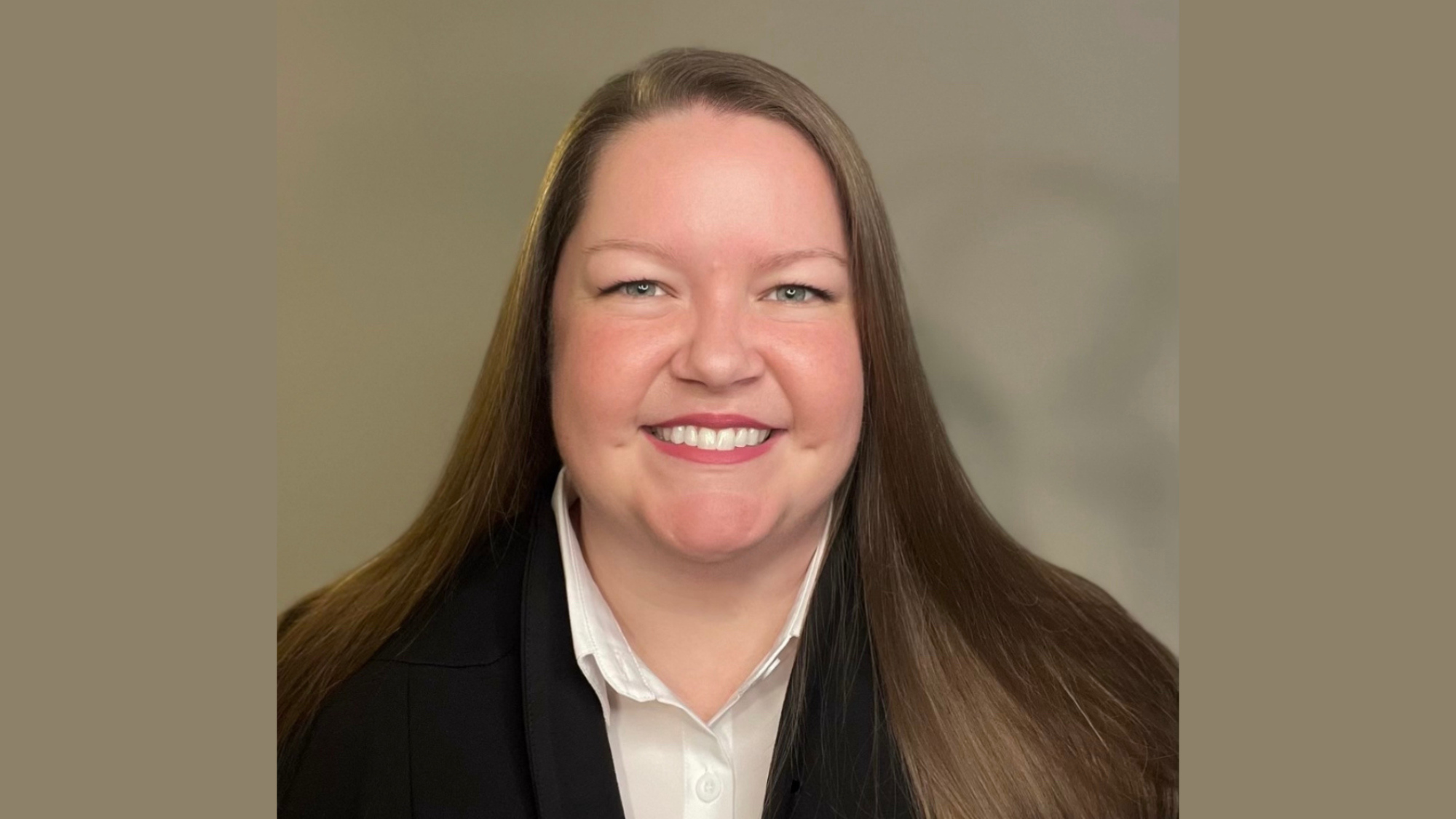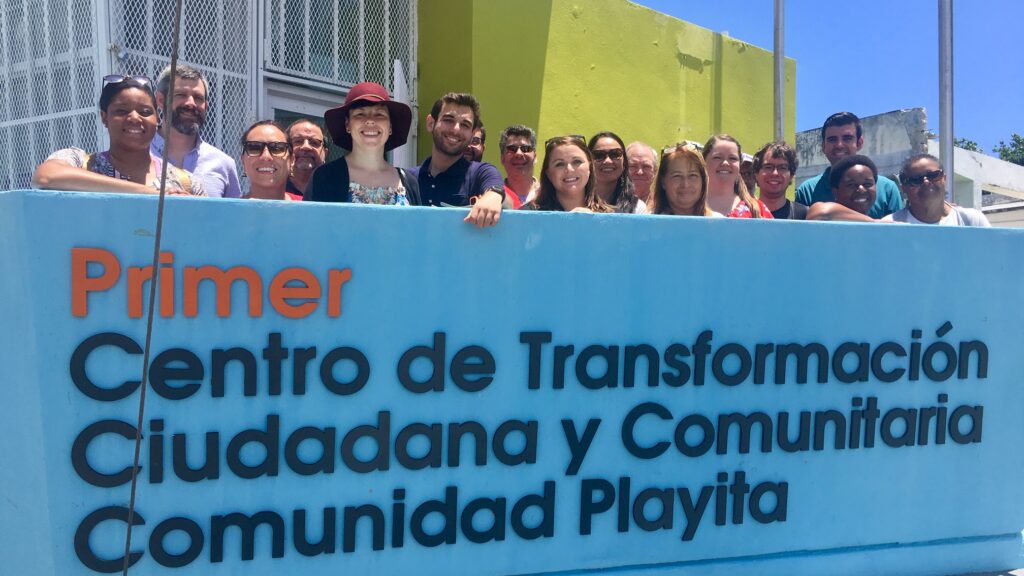Researcher Spotlight – Shannon McGovern

2022-23 Global Change Fellow
PhD student, Department of Public Administration
Advisor: Dr. Branda Nowell
Every year the Southeast Climate Adaptation Science Center funds a multi-disciplinary cohort of Global Change Fellows representing colleges across NC State University. Here are some highlights about 2022-23 Fellow, Shannon McGovern and the applied research she’s conducting.
About You
What do you study?
I study the public sector’s role in natural hazard mitigation, specifically related to wildfires. I focus on translating science to practice through public policy. In doing so, I promote the use of data for improving landscape-scale planning and collaborative governance. Wildfires do not care about jurisdictional boundaries, so my approach focuses on cross-boundary collaborations to reduce wildfire risk and build community resilience. I recognize the importance of incorporating equity, effectiveness, and efficiency into all natural hazard risk reduction and resilience efforts, and therefore allow these principles to guide my efforts.
What (or who) influenced you to go into this field of study?
I did not take a traditional path toward public service. I started out in a very different field, but eventually found my passion for public service during my role in human resources at a nonprofit organization. I have always been open to conversations with people about their passions and experiences and sharing mine with others when appropriate. In those conversations where we find shared interests, people are more than willing to offer guidance on educational programs, fellowships, internships, or other opportunities to explore passions. It took about ten years of those little conversations for me to eventually carve out my pathway. I’m not sure I could point to a single person who influenced me, but instead a collection of brilliant and kind women who helped me at different stages of my career.
What do you think is the most pressing issue related to global change?
The most important issue facing someone in my position is climate adaptation. As climate changes and disasters become more dangerous and costly, how are we going to prepare communities to reduce the risk of natural hazards and build community resilience? This is an incredibly complex issue that has countless implications, particularly surrounding available resources. What communities receive resources? Who has a voice in these decisions? What voices are not being heard in these decisions? What are the barriers to access the resources? How are we ensuring effective, efficient, and most importantly, equitable distribution of available resources? How can we serve communities while also respecting their autonomy? These questions are not siloed into one field or one agency. It requires interdisciplinary and interagency collaboration with passionate people willing to tackle countless challenges.
About Your Research

What is the most important thing you’ve learned?
The most important thing I have learned in my research is that the way we address climate adaptation needs to shift. Wildfire seasons are shifting into wildfire years, the decades-long crusade to suppress forest fires has created hazardous fuel loads on our landscapes, and extreme wildfire risk is not only a west coast problem. Many people think of California when they think of wildfires, but research has shown that more and more regions of the US are experiencing an increased risk for extreme wildfires. I am thankful for the Biden Administration’s historic investment in wildfire risk reduction and mitigation efforts, along with their support for more research in this sector. However, it is important that we, as public servants, do not solely rely on past techniques for addressing climate adaptation. As the environment evolves, so too do we need to evolve our strategies and technologies to protect communities.
Who will benefit from your research?
I am currently translating my research into data-driven policy memos for the federal Wildland Fire Mitigation and Management Commission, which is developing a strategy to address wildfire challenges. Federal policy is a powerful tool in incentivizing and encouraging climate adaptation, smart development, and building community resilience. I hope that federal policy changes from this historic investment in wildfire mitigation and management contribute to fewer economic and health impacts, and a reduction in lives lost. I am grateful to be a public servant behind the scenes contributing to these efforts in any way possible.
How would you describe your research to a 3rd grader?
I would describe my research to a third grader using pictures of national forests, filled with trees, right next to communities where people live. I would want them to know that fire in the woods is not always a bad thing. Fire with firefighters around to make it move in certain directions is a good thing, and it allows the brave firefighters to get rid of trees that might not be healthy in a forest, to make the forest safer. I would tell them that the firefighters need their help protecting cities and towns by making sure their parents and guardians are aware of wildfire safety websites, and that it is important to have a plan so everyone knows what to do in case of an emergency. Because I know fires can be scary, I would want to make sure the kids felt safe knowing their government and public servants, like firefighters, are doing everything they can to make sure we have good fire on the ground, and we are putting fires out when necessary. Then I would send them home with a little pamphlet to tell their parents or guardians how to talk to them about fires, what their role is in building community resilience, and provide resources for more information. I would end with pictures of healthy forests, and people feeling safe using the forests for recreation and fun!
About Your Global Change Fellow Experience
How do you expect the SE CASC Global Change Fellows Program to impact you and your work?
The SE CASC Global Change Fellows Program has provided me with a deeper understanding of the ethics of Tribal engagement, as well as how to communicate science to multiple audiences. It has provided me with a more robust vocabulary to use when communicating across audiences, particularly surrounding the need to incorporate Traditional Ecological Knowledge in wildfire mitigation and management efforts. This fellowship has also introduced me to scientific knowledge that reshaped how I discuss climate adaptation. The many wonderful scientists that speak to our cohort on a regular basis have bolstered my knowledge of data availability, how to correctly interpret technically complex data like climate maps, and the network of researchers willing to discuss complicated topics if I am ever unsure. I am forever grateful to be able to call myself a Global Change Fellow, because I understand the network of amazing researchers, practitioners, and scholars that this fellowship affords its participants.
What has been the most rewarding part or your favorite part of being a SE CASC Global Change Fellow?
The best part of being a SE CASC Global Change Fellow is the people. This network attracts genuine people interested in transdisciplinary collaboration working toward solutions for some of the biggest challenges in our ever-changing world. The blend of expertise in the cohort is amazing, each with our own passions and lenses on how we view problems and potential solutions. I have learned more about plant and wildlife species by listening to members of this cohort than I have in my entire life. It is a joy to learn more about research happening in other disciplines and see how all of it circles back to the core ideas of sustainability, climate adaptation, and resilience.
What advice would you give to an incoming Global Change Fellow to get the most out of their experience?
As a social scientist entering a network mostly occupied by biophysical scientists, I entered this space with an open mind. I knew there would be many conversations that were beyond my current knowledge or expertise, so I made an effort to learn from every single person. I do not always understand the technical details of the research or the interests of others, but I can clearly see the passion they have for their field. It is energizing to be in this space surrounded by so many brilliant and kind people. For the next cohort of Global Change Fellows, I would advise you to seek discomfort in conversations. Push yourself outside of your discipline or areas of interest and learn from as many people as possible. This is a safe space for questions and exploration which is incredibly rare to find. There is much to gain from every conversation in this space, and I would recommend that you do not shy away from the unknown.
Miscellaneous
Is there anything else you want to share?
I would like to note how thankful I am for the entire Climate Adaptation Science Center (CASC) network. The CASC network spans multiple disciplines, across every sector, and it is amazing to have so many CASC ties in all aspects of my professional life.
- Categories:
